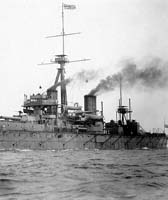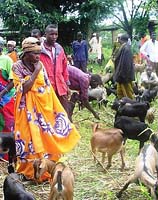BURUNDI Once known as Urundi, the Kingdom of Burundi emerged on the eastern foothills in the late 17th century.
 European explorers and missionaries that visited the region during the 19th century compared the kingdom to that of the old Greek Empire. In 1899, the region of Burundi was incorporated into German East Africa, until Germany's defeat in World War I - at which point control was handed over toBelgium.
European explorers and missionaries that visited the region during the 19th century compared the kingdom to that of the old Greek Empire. In 1899, the region of Burundi was incorporated into German East Africa, until Germany's defeat in World War I - at which point control was handed over toBelgium.
Under Belgium's ruling, Rwanda and Burundi were lumped together to form Ruanda-Urundi; however, both territories were able to keep their kingship dynasties.
In 1959, Mwami Mwambutsa IV appealed to the BelgianMinister of Colonies to separate Burundi and Rwanda, and political parties began to form in an effort to push for independence.
The country was successful and gained freedom fromEurope in 1962. Following their newly independent status, a constitutional monarchy was established that represented both the Hutus and Tutsis.
The country's recent history is replete with bloody battles between both ethnic groups, and those conflicts and disagreements continue today.
A particularly gruesome outbreak of violence occurred in 1972 as an estimated 200,000 - 300,000 Hutu were killed, and an additional 300,000 refugees fled to Tanzania.
An attempt at democracy came to light in June of 1993, and Hutu leader Melchior Ndadaye became the first Hitu head of state. Unfortunately, later that same year, Ndadaye was assassinated by Tutsi soldiers, which further increased tensions between both sides.
A decade of civil war followed, with an estimated 300,000 people (mostly civilians) getting caught in the crossfire.
Numerous rounds of peace talks, overseen by leaders inTanzania, South Africa and Uganda, began to establish power-sharing agreements in an attempt to satisfy the majority.
 The future of Burundi is somewhat bleak, as less than half of all children attend school, and basic foods and medicines are in short supply. As a result of the latter, HIV/AIDS is almost out of control.
The future of Burundi is somewhat bleak, as less than half of all children attend school, and basic foods and medicines are in short supply. As a result of the latter, HIV/AIDS is almost out of control.
With a high population density and very limited natural resources, most of the population remains economically suppressed, and resign themselves to subsistence agricultural farming.
 European explorers and missionaries that visited the region during the 19th century compared the kingdom to that of the old Greek Empire. In 1899, the region of Burundi was incorporated into German East Africa, until Germany's defeat in World War I - at which point control was handed over toBelgium.
European explorers and missionaries that visited the region during the 19th century compared the kingdom to that of the old Greek Empire. In 1899, the region of Burundi was incorporated into German East Africa, until Germany's defeat in World War I - at which point control was handed over toBelgium. Under Belgium's ruling, Rwanda and Burundi were lumped together to form Ruanda-Urundi; however, both territories were able to keep their kingship dynasties.
In 1959, Mwami Mwambutsa IV appealed to the BelgianMinister of Colonies to separate Burundi and Rwanda, and political parties began to form in an effort to push for independence.
The country was successful and gained freedom fromEurope in 1962. Following their newly independent status, a constitutional monarchy was established that represented both the Hutus and Tutsis.
The country's recent history is replete with bloody battles between both ethnic groups, and those conflicts and disagreements continue today.
A particularly gruesome outbreak of violence occurred in 1972 as an estimated 200,000 - 300,000 Hutu were killed, and an additional 300,000 refugees fled to Tanzania.
An attempt at democracy came to light in June of 1993, and Hutu leader Melchior Ndadaye became the first Hitu head of state. Unfortunately, later that same year, Ndadaye was assassinated by Tutsi soldiers, which further increased tensions between both sides.
A decade of civil war followed, with an estimated 300,000 people (mostly civilians) getting caught in the crossfire.
Numerous rounds of peace talks, overseen by leaders inTanzania, South Africa and Uganda, began to establish power-sharing agreements in an attempt to satisfy the majority.
 The future of Burundi is somewhat bleak, as less than half of all children attend school, and basic foods and medicines are in short supply. As a result of the latter, HIV/AIDS is almost out of control.
The future of Burundi is somewhat bleak, as less than half of all children attend school, and basic foods and medicines are in short supply. As a result of the latter, HIV/AIDS is almost out of control.With a high population density and very limited natural resources, most of the population remains economically suppressed, and resign themselves to subsistence agricultural farming.
No comments:
Post a Comment